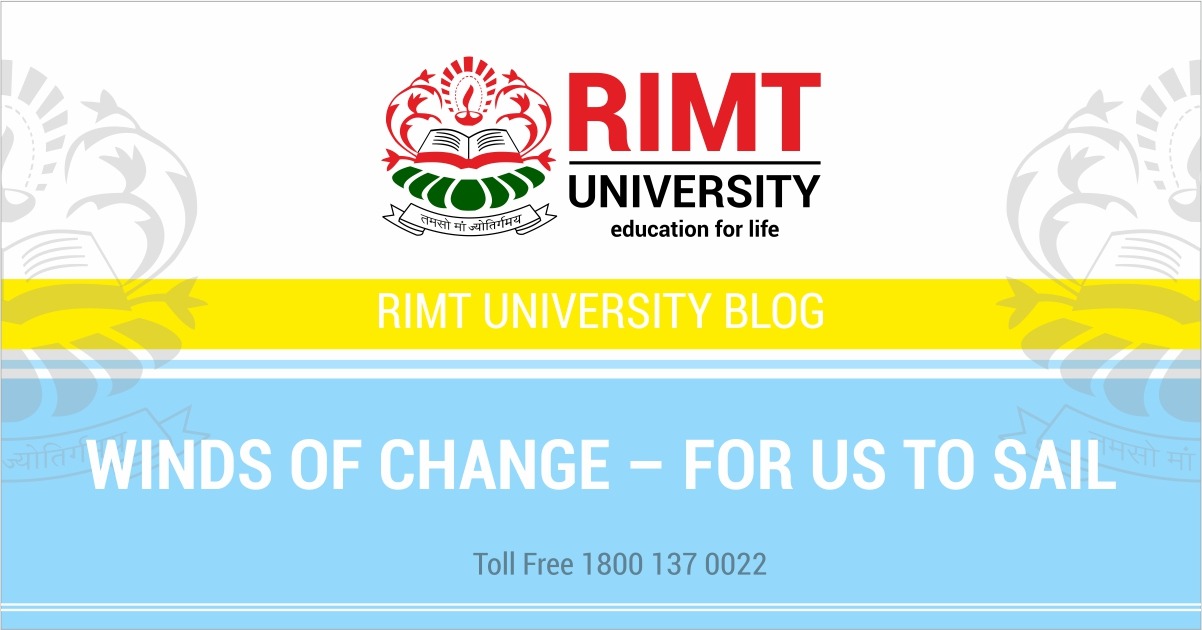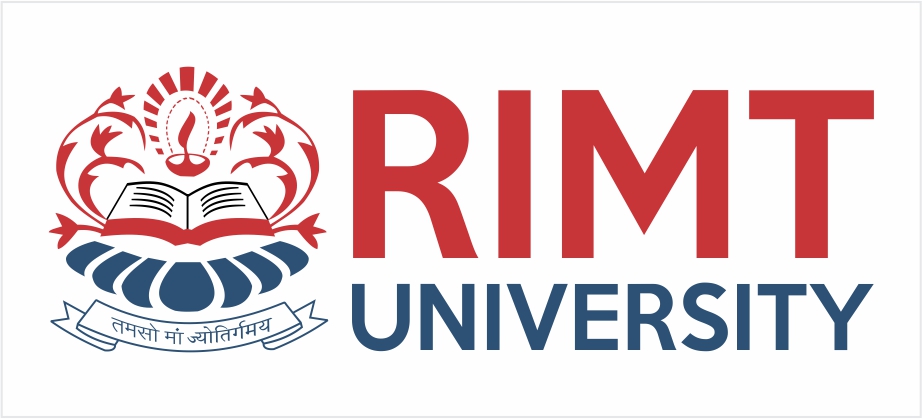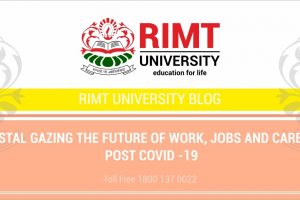
WINDS OF CHANGE – FOR US TO SAIL
Everyone agrees that we are passing through a very difficult twin phase of a medical crisis and the resultant economic emergency with its cascading effect on the societal fabric of the nation. But then it is rightly said, “Whenever there are big problems, they offer opportunities for innovators to provide solutions” and the present pandemic is an occasion for the bold to explore the frontiers of creativity and innovation to transform the world we live in.
There is no doubt that the Covid-19 will result in huge downturn in economic activity (read recession) but some sectors will be growing ahead of others deploying more of technology platforms/ solutions and this may become the thumb rule for all businesses big or small to adopt and adapt for survival .
Most importantly education assumes immense importance during such periods as withdrawing from school, college or university may led to lifelong disadvantages because education has two high impact rewards namely;
a) Enhance the scope of likelihood of finding and retaining a job and
b) Be the deciding factor of how much you will earn.
So while students seeking education abroad maybe sharply down, a large percentage of domestic school-leavers, more than ever before may enroll for higher education.
Empirical evidence from numerous researches carried out after the economic slowdowns (read recessions) of 1929, 1958, 1970, 1980 and 2008-09 have indicated that to overcome the pangs of unemployment and financial hardships those who continued educating and re-skilling themselves triumphed these adversities on a strong winning note.
As there is a silver lining around the dark clouds, the transformation in the education sector for a fulfilling career option lies in the adoption of a contemporary curriculum and academic delivery methods primarily through concurrently coexisting technologies. This dual education model of brick and mortar experienced during a face to face teacher taught learning interaction and electronic academic delivery through e-learning platforms, e-content, e-assessments, e-internships, etc is here to stay.
Everyone agrees that new technologies have transformed the world we live in. People in the remote area of India watch TV, stay connected through a voice or a video call on their smart mobile phones, receive/ send monies via mobile apps, operate bank accounts, purchase boarding tickets online, take online classes, book goods for delivery at home, etc, etc. All these technology-driven services have been adapted with incredible ease by the masses. So there is a reason to believe that a strong social and cultural environment stands created to navigate the next wave of technology assimilation successfully for their economic wellbeing. This high rate of technological integration and adaptation in a very compressed timeframe in India in comparison to the developed economies was made possible by the creation of fiber highway and proliferation of smartphone technologies.
As people exploit these technologies to become prosperous they also realize that becoming prosperous is not a virtue by birth or status but a result of energy and effort channeled through education and entrepreneurship. This is why spending monies for acquiring desired skills and education will become a priority. Thomas Zhang (LBS PhD 2017) has researched that in 2000 the average rural household spend on education in India was 0.6% of its per capita income and by 2015 that figure had risen to 20%.
Furthermore, it is a keen focus on developing contemporary skills along with vital fundamental learning to be successfully and productively employable. Human intellect rich in relevant education and training are welcome by employers and students and parents stand sensitized that this is essential for their children to earn a decent living in the future.
Suggesting an optimistic narrative, the metaphor “winds of change” is coined to advocate that having realized the importance of education and understanding of enabling technologies a self motivated student can sail through this turbulent economic environment and create value for himself and add to the national GDP. Ideation, Creativity, innovation, a solution-based approach and exploitation of opportunities should be the self-belief of the learner.
Having written as above it shall not be a smooth sailing as this pandemic disruption may have diverse responses to learning, skilling, up-skilling, and academic research and innovation.
Likewise, it shall be left to anyone with creativity and innovative mind to further an idea of creating solutions from opportunities despite the strong winds of technological, socio-cultural, economic and regulatory change.
Closing on a cautiously optimistic note wish to add that belief in the new wave of technology the industrial revolution 4.0 shall reconfigure value chains of business and generation of job opportunities.
So the sooner we adjust our sails to the winds of change the better it will be.
Dr. R.K Maheshwary
Dean
School of Management & Commerce



